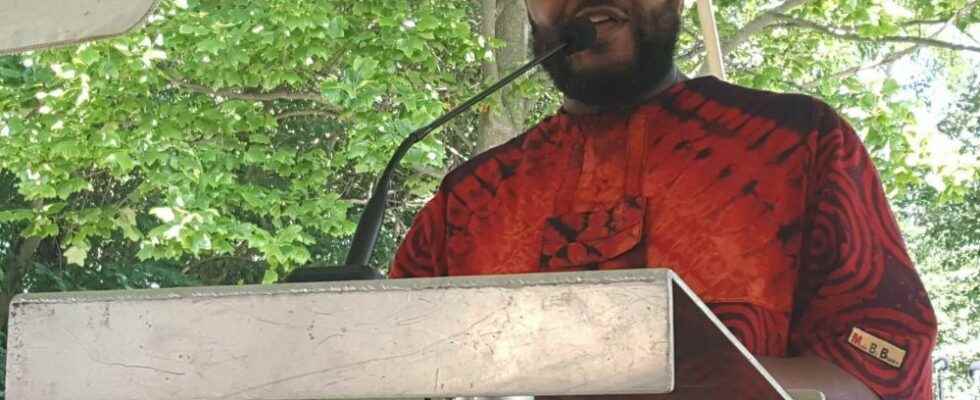Noting his enduring legacy, within the local community as well as the country as a whole, descendants of Josiah Henson believe the time had come for a name change at a Dresden historical site.
Family members from north and south of the border were on hand Saturday for Emancipation Day celebrations at the Josiah Henson Museum of African-Canadian History, formerly known as Uncle Tom’s Cabin.
The new name was unveiled as part of a program that included various speakers, entertainment and other activities.
The Black history site was previously named after an escaped slave who was the inspiration for the title character in the anti-slavery novel ‘Uncle Tom’s Cabin.’
Henson, a conductor of the Underground Railroad, led 118 people escaping slavery to freedom in Canada, where he helped establish a driving community for refugees.
Rev. Terrence Vick, of Ypsilanti, Mich., Henson’s great-great-grandson, called the name change a “noble honour,” as he thanked everyone involved.
“The Henson family and descendants today celebrate a phenomenon of meritorious humanitarianism,” he told the large gathering.
“To properly define emancipation, it is the actions set forth of brave and courageous efforts to ensure an individual’s freedom.”
Henson founded the Dawn Settlement near Dresden in the mid-1830s and helped create the British American Institute, where the free Black population and recently settled refugees of slavery were provided an education and taught the skilled trades.
Vick said his great-great-grandfather was not only a minister, but a “trailblazer in social justice” during his time.
Although the history is tragic, he added that Henson prevailed.
“Josiah Henson lived for freedom and has bequeathed to us legacy,” Vick said. “Legacy is noted as what the world inherits from your existence.
“We commemorate the canvas of yesterday’s pain, hardship and woe. We will in future generations perpetuate this story and mission of our venerable father and hero.”
The Ontario Heritage Trust, an agency of the provincial government, acquired the museum in 2005.
The trust, which maintains the museum as an agency of the Ministry of Heritage, Sport, Tourism and Culture Industries, had voiced serious concerns about associating “Uncle Tom” – a term typically used as a derogatory epithet for a Black person who is overly submissive or servile to white people – with Henson.
This renaming effort is part of the trust’s larger efforts to review all of its properties and programs through an inclusive and anti-racist lens.
Kim Jenkins and Cathy Carter, who are both third-great-granddaughters, and their mother, Barbara, were also at the event, along with other Henson family representatives.
Jenkins, of Binbrook, Ont., said the name change “reclaims (Henson’s) true story and his work,” adding she was pleased to learn of the decision.
“Uncle Tom did not live here,” she said. “Josiah Henson lived here.”
Chatham’s Cathy Carter, who also noted her mother’s efforts, said the change doesn’t alter history, but rather “moves forward to make history right.”
Museum manager Steven Cook, who has worked at the site for more than three decades, became emotional when discussing the announcement, crediting all those who made it possible.
“They know the importance of the story we’re telling here,” he said. “I think we’re living up to the vision of Josiah Henson.”
